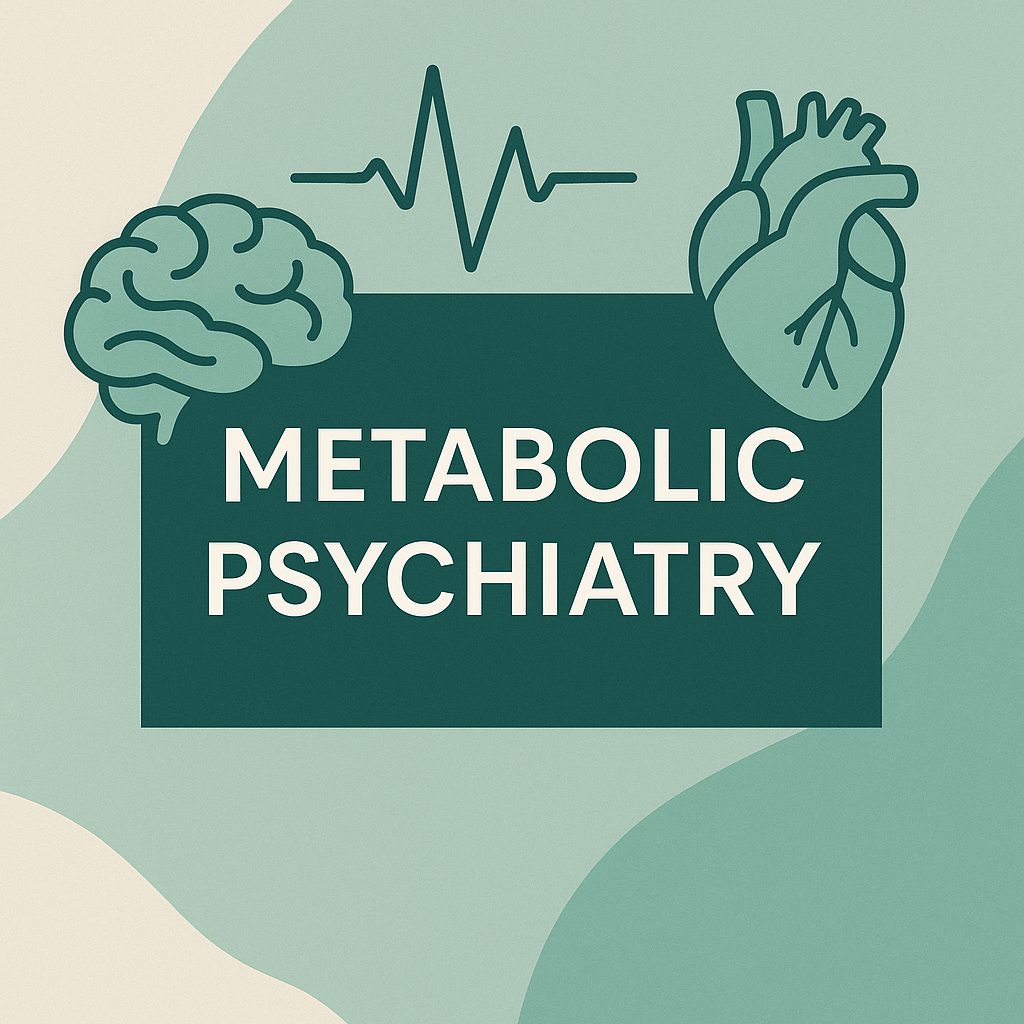The Impact of Diet and Metabolic Health on Mental Health: Revolutionary Treatment Approaches
For decades, psychiatry has focused heavily on neurotransmitters—serotonin, dopamine, norepinephrine—as the “big three” of mental health. But new science is showing that the mind is not separate from the body. Instead, our mental health is tightly linked with our diet, metabolism, and even the way our mitochondria produce energy. This growing field—metabolic psychiatry—is reshaping how we understand and treat conditions like depression, anxiety, and other psychiatric disorders.
Book an Appointment
The Metabolic–Mental Health Connection
Research has uncovered a bidirectional relationship between depression and metabolic syndrome, a condition marked by obesity, high blood pressure, high cholesterol, and insulin resistance. In a groundbreaking Mendelian randomization study, Zhang et al. (2021) demonstrated that not only does metabolic syndrome increase the risk of depression, but depression itself may worsen metabolic health—creating a vicious cycle that traps patients in both poor physical and mental health.
This finding highlights an important truth: when we treat the body, we treat the brain, and when we treat the brain, we treat the body.
The Role of Mitochondria and Tryptophan Pathways
Our mental state depends on how well our brain cells produce and use energy. Mitochondrial impairment—the reduced ability of cells’ “powerhouses” to generate energy—has emerged as a common factor in psychiatric disorders. Tanaka et al. (2022) emphasize the link between dysfunctional mitochondria and disturbances in the tryptophan–kynurenine pathway, which regulates serotonin and neuroprotective metabolites. When this pathway is imbalanced, patients may experience both mood disorders and cognitive changes.
This suggests that psychiatric symptoms are not just “chemical imbalances” but may also reflect underlying metabolic and cellular dysfunction.
Diet as a Foundation for Mental Health
Dietary patterns directly influence brain health. Diets high in refined sugars and processed foods can promote inflammation, insulin resistance, and mitochondrial stress—all of which worsen depression and anxiety. Conversely, nutrient-dense diets rich in omega-3 fatty acids, antioxidants, fiber, and amino acids like tryptophan can support healthier brain signaling and energy metabolism.
Examples include:
-
Mediterranean-style diets, associated with reduced depression risk.
-
Ketogenic or low-carbohydrate approaches, which stabilize insulin and may improve treatment-resistant mood disorders.
-
Anti-inflammatory foods (leafy greens, fatty fish, berries), which reduce oxidative stress on the brain.
Revolutionary Treatment Approaches in Metabolic Psychiatry
What makes this field revolutionary is that it goes beyond traditional antidepressants by addressing root causes in metabolism. Innovative strategies include:
-
Metabolic Medications with Psychiatric Impact
-
Drugs like metformin (used for diabetes) are being studied for depression in insulin-resistant patients.
-
GLP-1 receptor agonists (like semaglutide) may also reduce both metabolic burden and depressive symptoms.
-
-
Targeting Mitochondria
-
Nutritional supplements such as CoQ10, NAD+ precursors, and certain amino acids may support mitochondrial resilience.
-
Therapies that restore mitochondrial function could improve both mood and cognition.
-
-
Diet-Based Interventions
-
Structured programs integrating dietary counseling into psychiatric care are being tested to break the depression–metabolic syndrome cycle.
-
-
Integrated Care Models
-
Combining psychiatric and metabolic treatments into holistic, whole-person care may offer the most promise. Patients with depression, obesity, and metabolic syndrome benefit most when both aspects are treated together rather than separately.
-
Book an Appointment
A New Horizon: Treating the Whole Person
The future of psychiatry lies in seeing mental health through the lens of metabolic health. Instead of separating “brain” and “body,” metabolic psychiatry brings them together, creating space for innovative therapies that restore balance at the cellular and systemic level.
By focusing on diet, metabolism, and mitochondrial health, we move toward revolutionary treatment approaches that sync the mind and body, ultimately offering hope for patients who haven’t found relief through traditional psychiatric care.
